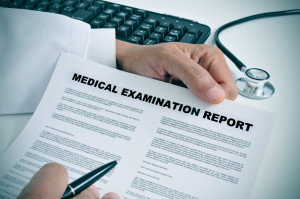A New York appellate court recently called years of expert witness testimony on shaken baby syndrome into question by overturning a 2001 conviction due to insufficient scientific support for evidence supporting the prosecution’s case. Shaken baby syndrome prosecutions rely on expert witness testimony due to the medical science involved in connecting the victim’s injuries with the defendant’s actions, however, recent advances in shaken baby research suggest techniques experts have used for years may not be reliable.
New York Woman Challenges Shaken Baby Conviction
Rene Bailey was convicted of causing the death of a 2 ½-year-old child at her daycare after the child suffered a serious head injury while in her home. Prosecutors charged Rene with second-degree murder, and she earned a conviction on the strength of medical expert witnesses who told jurors that the child’s injuries were the result of being shaken. Rene maintained her innocence, arguing that the young girl suffered an unfortunate fall which caused the injuries. However, shaken baby expert witnesses rebutted the defense’s claim by saying such a scenario was impossible.
Bailey was convicted of the second-degree murder charge and has been serving her sentence ever since. However, early in 2014 attorneys specializing in appealing shaken baby convictions took interest in her case. Bailey’s new attorney believed that the child had suffered from a serious fall, and argued that the shaken baby expert testimony presented fifteen years ago has since been refuted by advances in medical science research. According to Bailey’s new defense team, headed by Adele Bernhard, if the evidence available now had been presented during the 2001 trial, Rene would not have been convicted.
New York Appellate Court Overturns Shaken Baby Conviction
Adele Bernhard and the rest of Bailey’s legal team focused their appeal on challenging established forensic expert testimony with new developments in medical science which question the certainty of shaken baby expert testimony that has been used since the 1970s. According to Bernhard, alternative explanations for the type of injuries suffered by the little girl in Rene Bailey’s murder case were too easily dismissed by prosecution expert witnesses during the 2001 trial, and current experts in forensic medicine have since acknowledged that children can suffer serious brain injury by falling.
In a surprising ruling, Judge James Piampiano agreed with Bernhard and overturned Bailey’s conviction by finding, “There has been a compelling and consequential shift in mainstream medical opinion since the time of the defendant’s trial.” On appeal by prosecutors, a four-judge panel of New York’s Fourth Department Appellate Division of State Supreme Court agreed with Piampiano’s ruling. The New York appellate court found that Bailey should be freed due to new scientific findings, writing, “Had this evidence been presented at trial, the verdict would probably have been different.”
Following the appellate rulings in her favor, Rene Bailey has been released from prison, and the long term future of shaken baby syndrome prosecutions in New York is uncertain.
Prosecution of New York Shaken Baby Cases Uncertain
In the process of overturning Rene Bailey’s conviction, the New York appellate court called years of expert witness testimony on shaken baby syndrome into question. For years, medical experts have connected three specific injuries — bleeding in the retinas, bleeding in tissue surrounding the brain, and swelling of the brain — to shaken baby syndrome, mostly in cases where there is not any other available evidence. Since the 1970s, medical experts have used the combination of these three injuries to eliminate all other possible sources of injury other than shaken baby, giving prosecutors strong evidence against defendants accused of shaking infants and toddlers.
Recently, however, forensic medical experts have argued that this combination of injuries can occur due to falls, and even question whether shaking a baby is sufficient to cause fatal injury without other head trauma. In light of new medical evidence, attorneys across the country are calling years of shaken baby expert testimony into question, suggesting that prosecutors will not have as clear a path to conviction in this type of case in the future.






